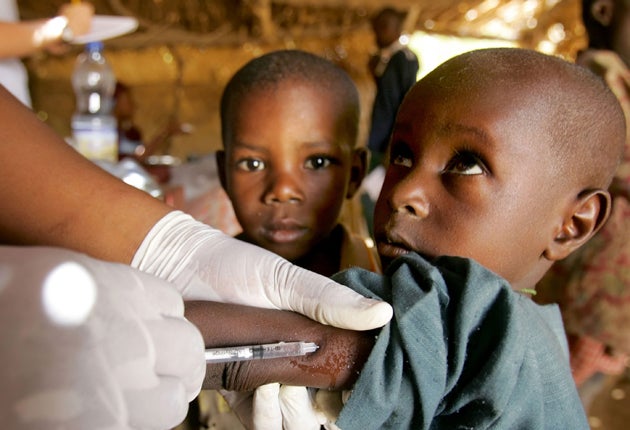Steve Connor: An open letter to Bill Gates
Lab Notes

Dear Bill,
As the second richest man in the world, I know you are not short of people giving you advice, but I thought I'd pen a quick letter to you to fill you in on a recent round table I sat in on with some vaccine scientists, journalists and a few of your people from the Bill and Melinda Gates Foundation.
The aim of the meeting at the London School of Hygiene and Tropical Medicine was apparently to brief you on why the media in Britain don't seem to be picking up on the "good news" about vaccines in the developing world.
Back in January you announced at the World Economic Forum in Davos that the coming10 years should be the "decade of vaccines", which will be generously funded with $10bn (£6.3bn) from your personal fortune. As you pointed out, about 2.4 million children in the poorest countries of the world still die each year from diseases that could be easily prevented by vaccines widely available in the developed world.
Of course the story of vaccines over the past few decades has been one of astonishing successes. Each year, more than 100 million children are vaccinated against measles, polio and other preventable diseases, and it is estimated that the lives of some 20 million children in the Third World have been saved over the past two decades.
Professor David Salisbury, an eminent vaccine scientist and member of the WHO's Strategic Advisory Group of Experts on Immunisation, told us that it is often quite difficult to get the message across to parents about the benefit of vaccinating their children when the end result is the absence of a disease which they have not therefore encountered. And that is similarly the problem with the media. Leave aside for one moment the cliché that "good news doesn't sell newspapers", the reporting of "no deaths today" is a difficult one to pull off. Something not happening is always going to be trumped in the news agenda by something that actually happens.
Another problem is the fact that vaccination strategies are an ongoing process, and it is difficult to the media to focus their attention on something so on-going unless there are milestones of some kind – a scientific breakthrough perhaps, or the point at which a disease is finally eradicated.
The story of polio is a good example. As you know, there are just four countries now where this terrible illness remains endemic – Afghanistan, Pakistan, India and Nigeria – and the virus is stubbornly lingering on to trigger outbreaks in other countries. A last-ditch effort to vaccinate children in these regions could eradicate this disease for good, just as smallpox was eradicated more than 30 years ago. The really big "good news" story here that we are all waiting to report on is the point at which polio can be declared to be eradicated... or perhaps there will be the bad news of it re-emerging in Europe or Britain.
Walt Orenstein, from your foundation, said the eradication of polio worldwide is critical for the success of other vaccine initiatives. "In essence, we have polio on the ropes... If we don't finish it off now, we run the risk of a resurgence." More important, he said, a failure to eradicate polio will be seen as a public relations disaster for the overall policy of controlling diseases in the developing world through mass vaccination.
You will no doubt be getting a report back from your advisers about the London round table. Professor Peter Smith from the London school raised the subject of vaccine "scare stories", which he pointed out are more likely to get the media's attention here than the good news about vaccines saving the lives of more than 2 million children a year.
Much has been written on this subject, of course. My own take, for what it's worth, is that dry epidemiological statistics showing the benefits of vaccination are not always going to win over parents who are emotionally affected by a single harrowing case of a damaged child who may or may not have been made ill by a vaccine. The power of personal anecdote will so often trump a scientific, cost-benefit analysis – that is human nature.
So, to finish up, it is important to realise that the media's coverage of vaccines is a reflection of the diverse views among the public at large. It would be wrong to assume that we have the power to dictate public opinion. We all find bad news often more interesting and important than good news, we don't want constant reports of an ongoing process that doesn't change very much, and we need milestones around which to crystallise a story. That's why reporting on the obvious benefits of mass vaccination in the developing world is so difficult.
I hope that helps.
Best wishes.
Steve
Join our commenting forum
Join thought-provoking conversations, follow other Independent readers and see their replies
Comments
Bookmark popover
Removed from bookmarks